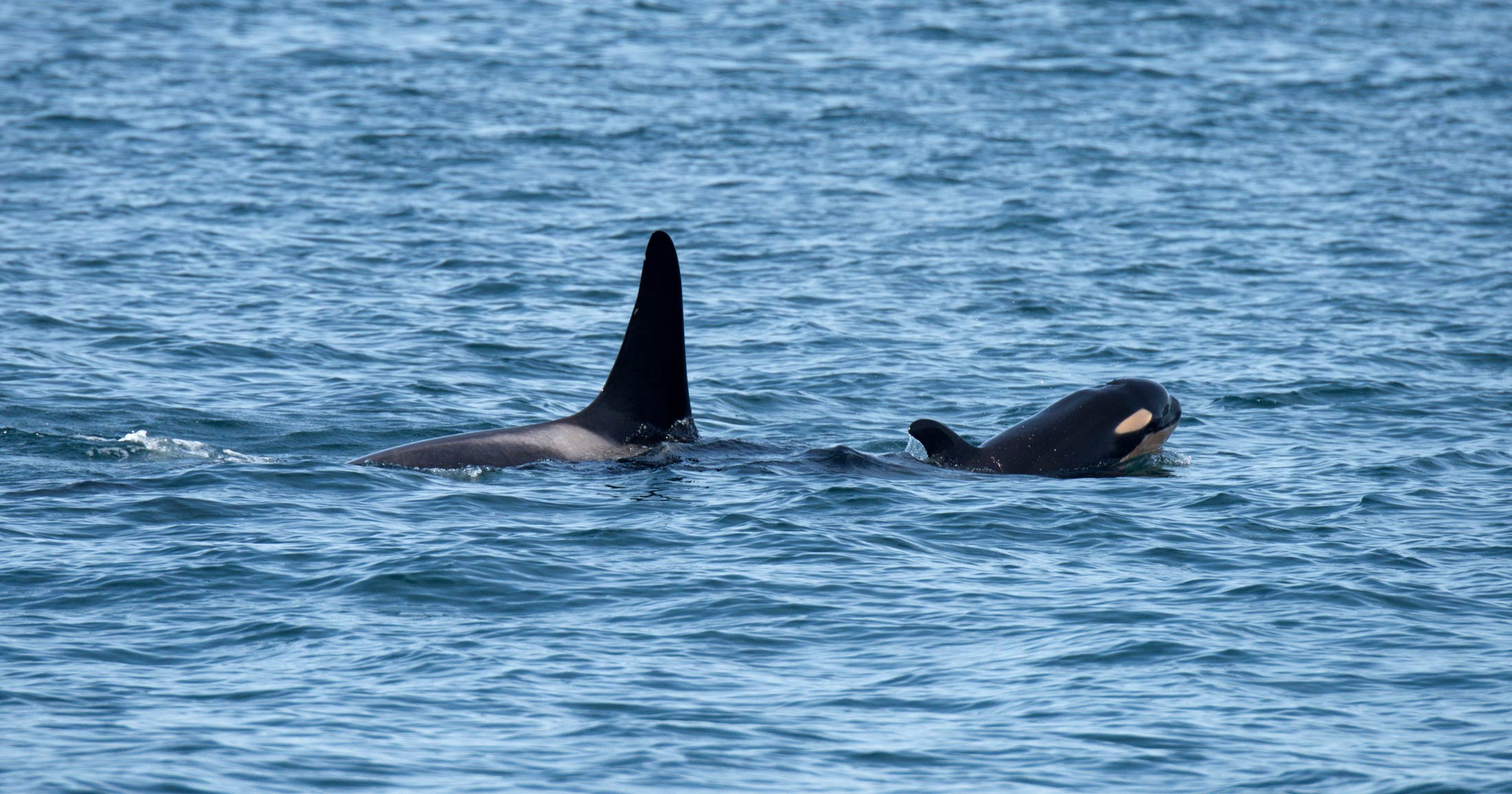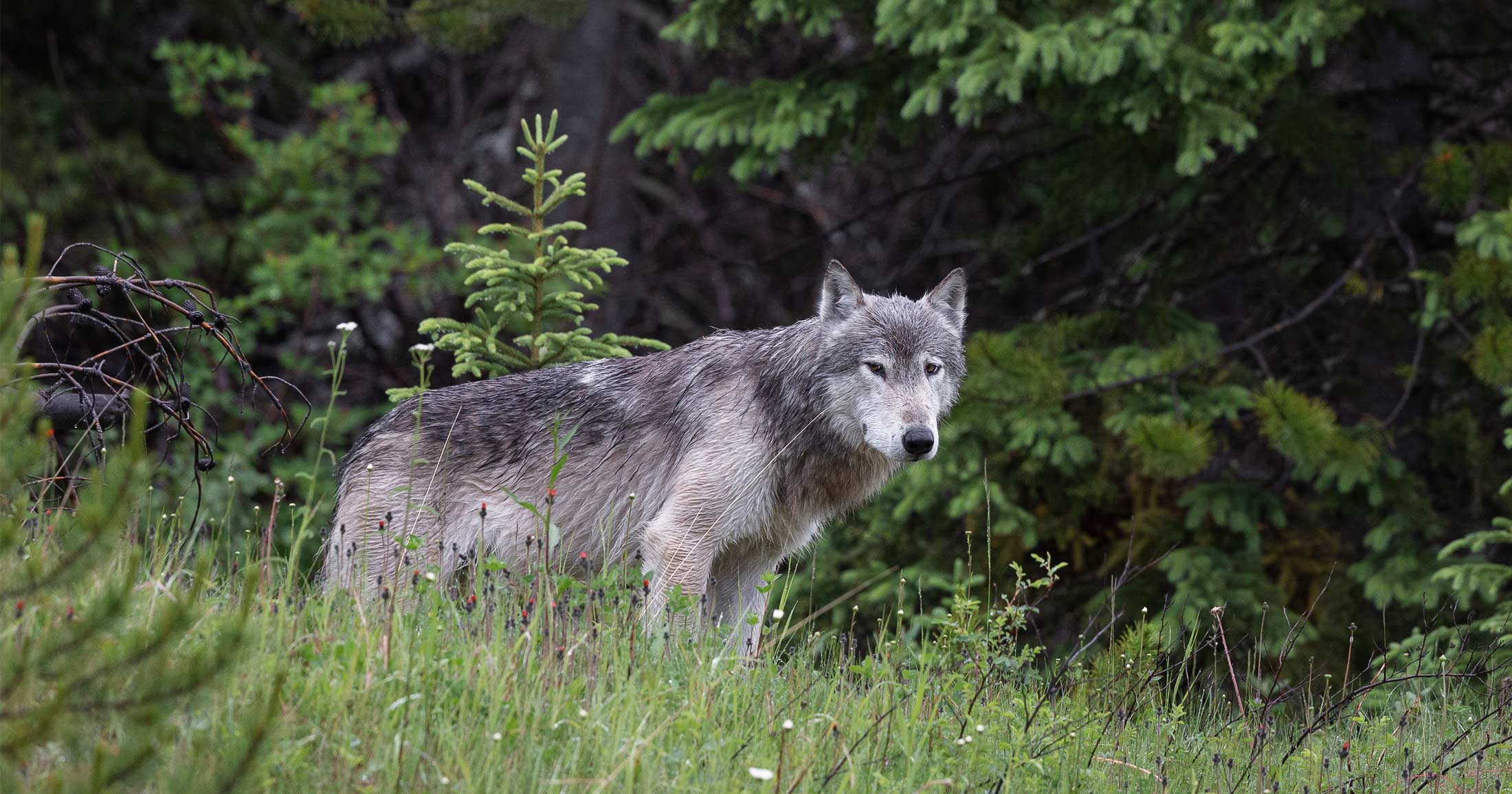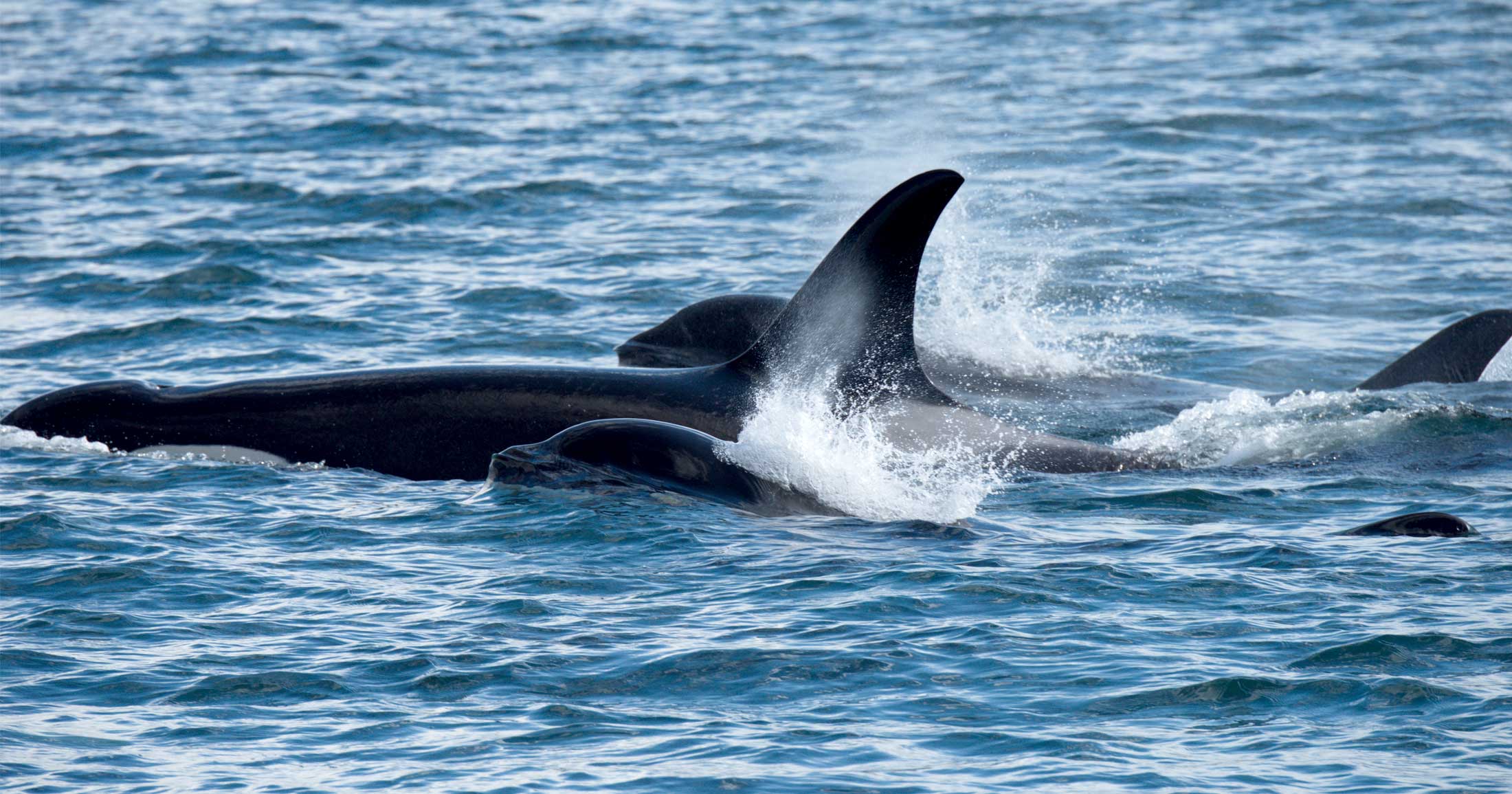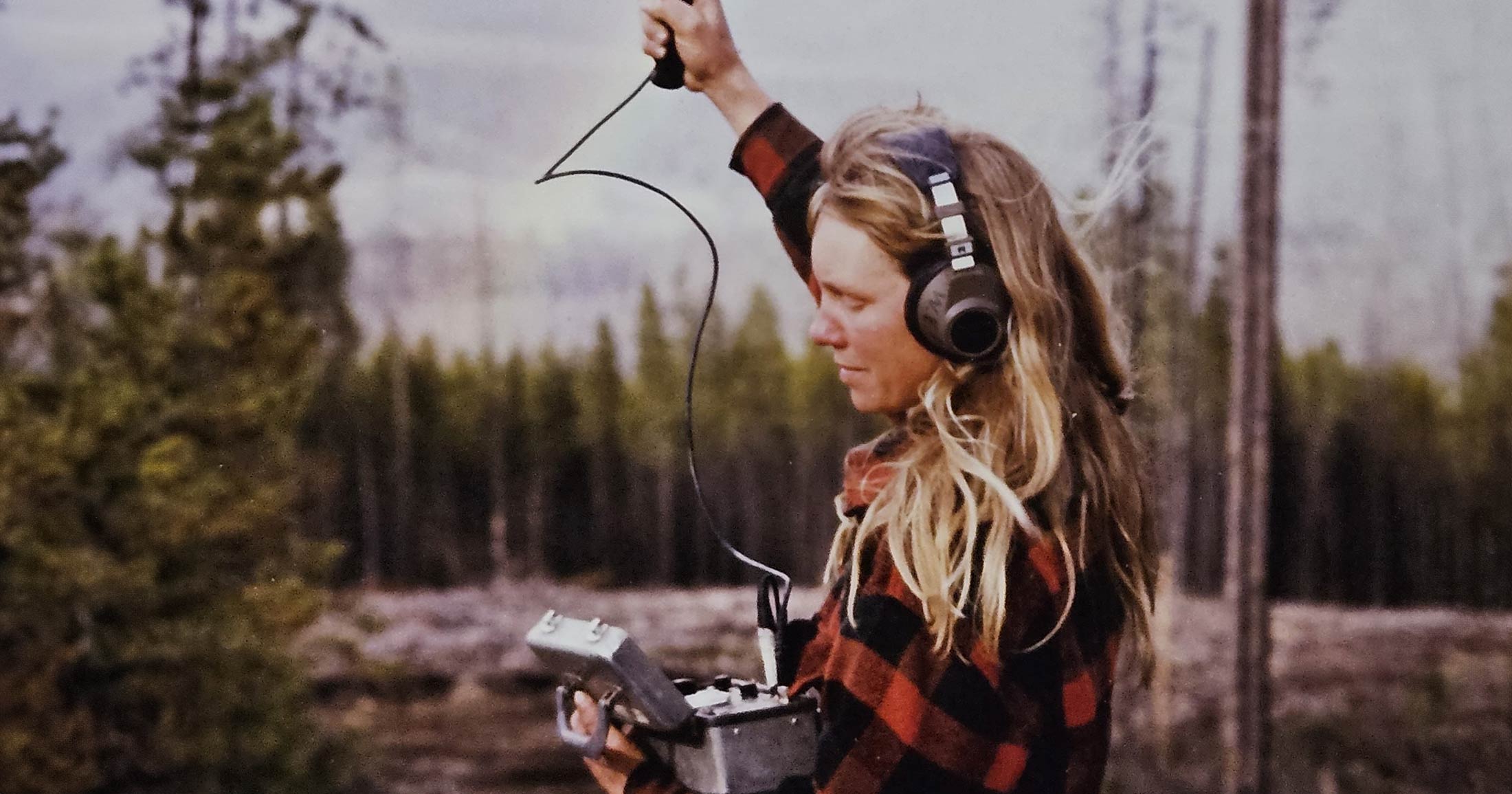Episode 2: Wolf social behaviour with Jane Packard

In this episode of Raincoast Radio’s Of Wolves and Women, behavioural ecologist Dr. Jane Packard highlights the connection between behaviour, ecology, and physiology as she recounts captivating tales from her time as a wolf researcher across Canada and the US. From captive wolves in Minnesota to the wild packs of Ellesmere Island and Yellowstone National Park, we also explore the complex interplay of social and environmental factors that shape the intricate lives of wolves, delving into their reproductive, social, and cognitive behaviours.
“It’s not so much social intelligence in wolves, but it is their inherent intelligence that’s shaped by the social context of growing up in a family group.”
Dr. Jane Packard
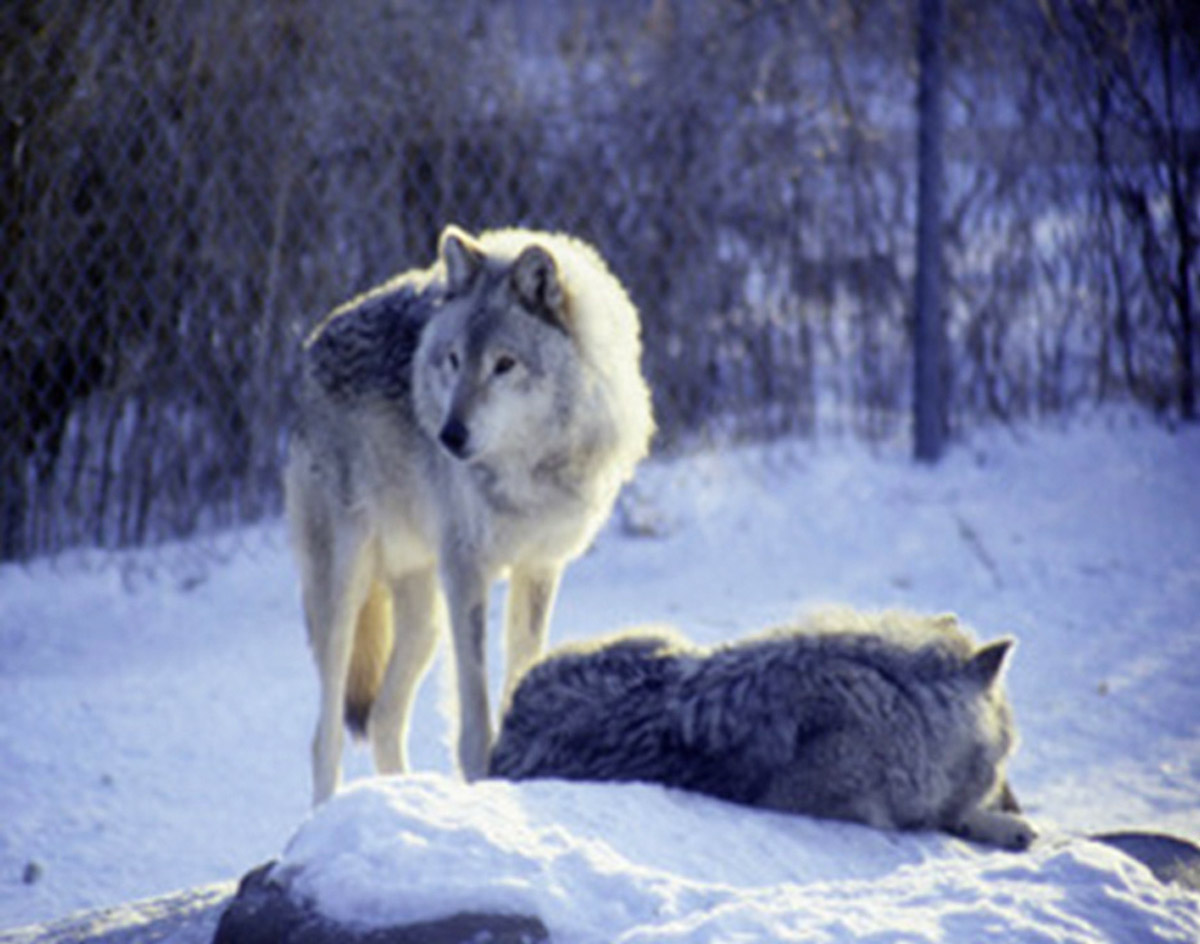
Additionally, in the pursuit of progressing both wolf research and conservation, we discuss the importance of learning to see the world through the eyes of another being — whether two-legged or four-legged — and recognizing the value of perspectives shaped by diverse experiences and ways of knowing.
“The key for conservation of wolves is going to be, in each particular location, what are your goals for protecting the wild lands and the wild lives? And encourage people who have different perspectives to identify their options to the solutions and to understand each other’s perspectives on those options. Because by doing so, each may reframe how it is they see the problem.”
Dr. Jane Packard

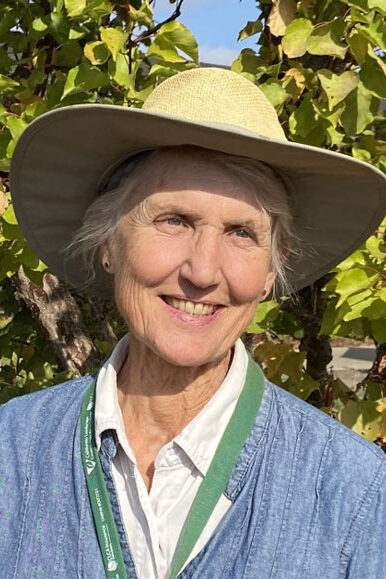
Dr. Jane Packard is Associate Professor Emeritus at Texas A&M University. She joined the Graduate Faculty in Wildlife and Fisheries Sciences with a BA in Psychology from Swarthmore College, Ph.D. in Ecology and Behavioral Biology from the University of Minnesota, and postdoc at the University of Florida.
In 2008, she was internationally recognized as a leading expert on wolf social behaviour for research conducted early in her career. Her national reputation broadened as she applied the principles of behavioural ecology to marine mammals and ungulates. Her greatest research contributions included behavioural mechanisms of infertility, animal use of habitat, and diverse cultural perspectives on conservation.
Teaching and service awards highlighted her dedication to scientific rigor, diversity, and high impact learning experiences for undergraduates. She served on the boards of international, national and local non-profit organizations, including: Society for Conservation Biology, Organization for Tropical Studies, Fossil Rim Wildlife Center, and Brazos Valley Museum.
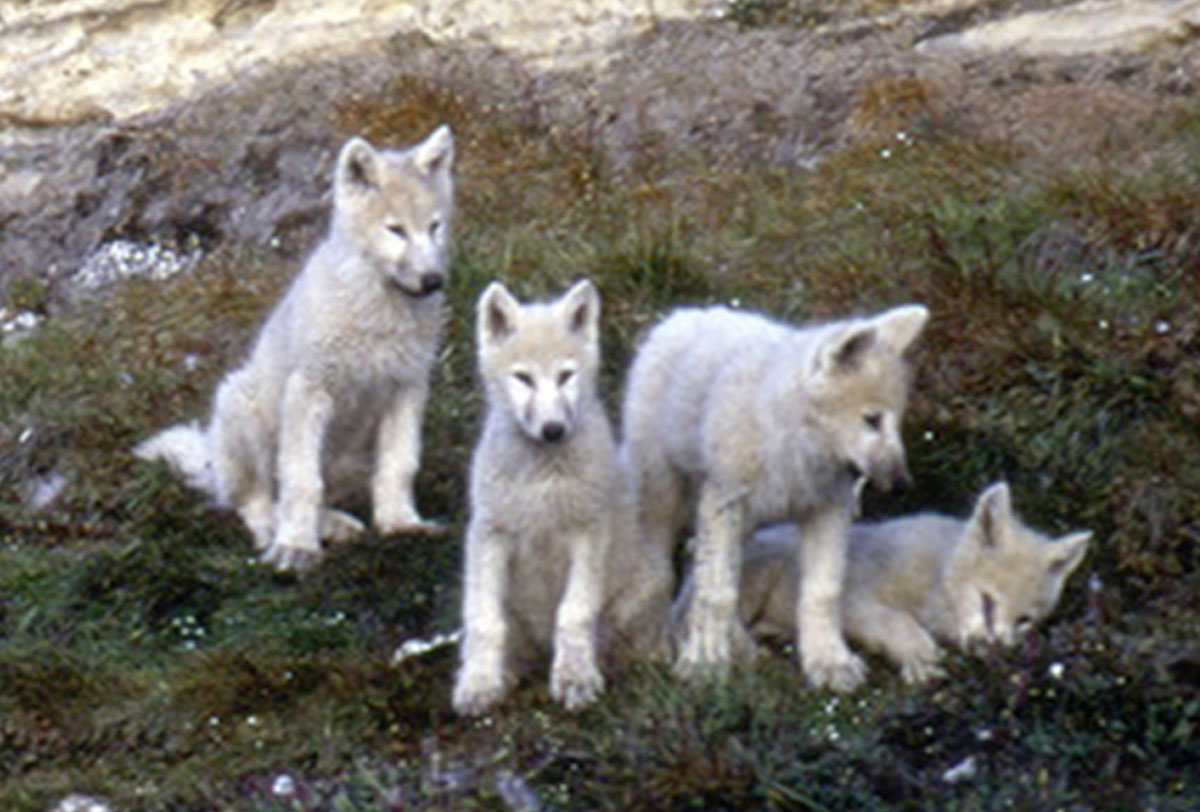
Additional resources
- Jane M. Packard’s research
- Wolves (2019)
- Wolf Social Intelligence (2012)
- Wolf Behavior: Reproductive, Social, and Intelligent (2003)
- Books mentioned in the episode
- The Arctic Wolf by L. David Mech
- In the Shadow of Man by Jane Goodall
- Braiding Sweetgrass by Robin Wall Kimmerer
- Films featuring Gudrun Pflüger:
- Learn more about our Wolf Conservation Program
Topics discussed
[00:35] – Jane’s introduction
[01:25] – What led you to study wolves?
[02:23] – Studying personality in Geese
[03:45] – How does someone study animal behaviour?
[06:25] – The importance of context
[07:04] – Studying wolves on Ellesmere Island
[08:23] – Stories of a wolf pack on Ellesmere island
[12:10] – The relationship between the food provider and the pups
[15:02] – Who was your inspiration when it came to understanding animal behaviour?
[16:45] – Thinking and writing about intelligence in wolves
[18:20] – Writing a book chapter on social intelligence in wolves
[21:16] – The complex social and physical environment wolves live in
[24:07] – The intrinsic factors that may influence wolf populations
[27:00] – Studying wolves in Yellowstone
[29:40] – Studying captive wolves in Minnesota
[31:20] – The value of learning from wolves in both captive and wild contexts
[33:50] – What has your work taught you about the importance of individuals?
[35:35] – From dominance hierarchy to viewing wolves as families
[37:05] – Different dimensions of personality
[37:45] – Using terms such as alpha or dominant
[39:35] – Individual differences, hormones, and the brain
[41:05] – The value of collaborating with other fields
[42:00] – Understanding perspectives of people who have had different experiences
[45:05] – Adaptive management
[46:10] – Advice to those interested in pursuing a career in animal behaviour
[52:15] – Living with wildlife as neighbors
[52:40] – Quote from Robin Wall Kimmerer
About Raincoast Radio
Raincoast Radio is created by Raincoast Conservation Foundation. It is produced by Sofia Osborne with additional audio editing by Oumar Salifou. Fact checking by the Raincoast team. The wolf photo in the podcast art is by Mark Williams. Music by Crypt-of-Insomnia and Luca Francini.
Subscribe


